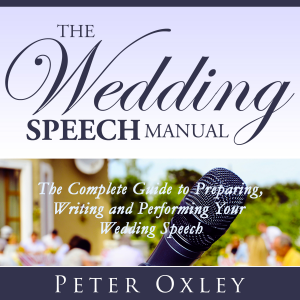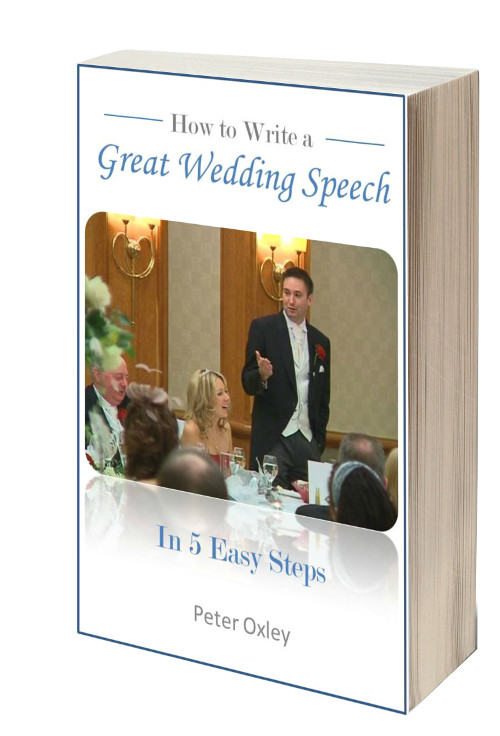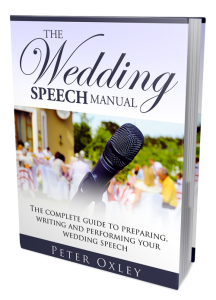What Kind of Wedding Speaker Are You?
 I was exhibiting at the Luton Hoo Luxury Wedding Show this weekend and it struck me, as I watched and spoke to the people looking round the stands, that there are basically three different types of would-be wedding speaker – which one are you?
I was exhibiting at the Luton Hoo Luxury Wedding Show this weekend and it struck me, as I watched and spoke to the people looking round the stands, that there are basically three different types of would-be wedding speaker – which one are you?
1) The “I’m Alright, Jack”
This might be bravado to impress others (the future other half, the mates) or it could genuinely be a supreme confidence that they’ll be perfectly alright. Often these people will have done speeches or presentations before, whether that’s at a different wedding or as a part of their day job – or they’ll just be completely mystified as to why standing up and doing a speech is something to be afraid of.
Whilst all this confidence can be a great thing to have, it’s important to make sure that you aren’t too confident. Why? Well, for starters bear in mind that the key to doing anything well is preparation and practise – this applies to public speaking as much as to any other activity. But the overly confident person will tend to put off the preparation and practise – after all, why waste the time when you’re going to be amazing regardless?
You can also set yourself up for a fall by being openly over-confident, as people will be looking forward to a flawless performance. If you deliver that perfect speech, then that’s great – but then you were always going to be amazing because you said so, right? Whereas if you slip up (for example by not being prepared enough and as a result fluffing your lines…) then people might jump on it as a bit of a let-down, or a sign of you not delivering what you promised / boasted.
Contrast this with someone who admits to a bit of nerves and doesn’t promise the earth in advance – people will support them and praise them regardless of whether they do an OK or a great job. And they really will be treated like a superstar when they deliver a great speech!
And finally here’s a key reason to not be too confident, particularly if you’re the best man. Too much confidence and/or boasting can make you seem less likeable, leading to people maybe looking for chinks in your armour. Getting (and keeping) the audience onside is vital for your speech and, while the groom and father of the bride will have the audience’s support by virtue of their roles on the day, the best man doesn’t necessarily have this benefit. Why handicap yourself right from the start??
Remember – admitting to a bit of vulnerability isn’t necessarily a bad thing – in fact, doing so might actually be the best thing you can do!
2) The “I’m not thinking about it right now”
These sort of wedding speakers aren’t as blatantly overconfident as the “I’m Alright, Jack”s, but nor are they particularly paralysed by fear. Often they’ll say that they never have any trouble talking, maybe have done plenty of public speaking in the past, and they know it’ll all be fine on the day. They know what they need to do, but have plenty of other things to focus on right now – whether that’s planning the wedding, or the stag do, or work.
The key thing here is to make sure you really do make time to prepare and practise – as I said above, this is key to doing a good job with your wedding speech. Put some time in your diary to do this, and make sure you force yourself to stick to it – maybe tell a friend or your partner about it and ask them to remind / nag you as the appointed day approaches. And make sure you prepare plenty of time in advance of the big day, or you’ll run the risk of turning into my third and final type of would-be wedding speaker…
3) The “I really don’t want to think about it – please make it go away!”
This type of person is a lot more common than people will admit. Sometimes those who pretend to be types 1 and 2 are secretly putting off the speech out of sheer nerves – like a student with their bank account, hoping that if they ignore it for long enough it will all sort itself out.
If you fall into this camp (whether you admit it or not!) the key thing to remember is that things really aren’t as bad as you fear they are. People will be on your side, supporting you and willing you to do well. They won’t heckle you or complain that you’re not funny enough – you’re speaking at a wedding, not doing a turn in a comedy club!
This is especially true if you’re the father of the bride or groom, but even the best man can expect some level of support from the audience – especially if they admit to nerves and don’t wind people up by being over-confident…
There are some simple tricks you can use to combat wedding speech nerves – see my free helpsheet “Beating the Nerves: Have No Fear of Your Wedding Speech!”.
At the end of the day, the most important thing is to prepare and practise – and this is where this final type of would-be wedding speaker has the edge over the other ones, as they are much more likely to do this. And ironically, they will as a result be more likely to do an amazing job on the day (and get real credit for it from the audience).
What do you think? Do comment below and let me know which type of wedding speaker you are, and whether or not you agree with what I’ve said…!






